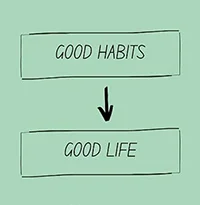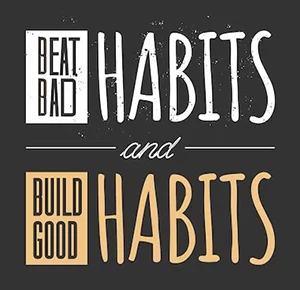

Introduction: In our fast-paced world, managing habits can often feel overwhelming. But with the right tools and mindset, both forming new, productive habits and breaking bad ones is entirely within reach. Whether you're striving to build a daily exercise routine or kick a late-night snacking habit, habit tracking can provide a powerful framework for success. This post will explore how to master your habits through intentional tracking, simple techniques, and consistent reflection.
Why Habits Matter: Habits are the small, everyday actions that shape our lives. While one habit may seem insignificant, over time, these routines dictate the course of our productivity, health, and happiness. Good habits help us grow, while bad habits hold us back. The good news? By understanding how habits work, you can gain control and create lasting changes.
 The Science Behind Habit Formation: Before diving into the "how," it's important to understand the "why." According to research, habits form through a loop of cue, routine, and reward. A cue triggers a behavior, which is followed by a routine, and completed by a reward. For example, when your phone buzzes (cue), you check it (routine), and you feel informed (reward).
The Science Behind Habit Formation: Before diving into the "how," it's important to understand the "why." According to research, habits form through a loop of cue, routine, and reward. A cue triggers a behavior, which is followed by a routine, and completed by a reward. For example, when your phone buzzes (cue), you check it (routine), and you feel informed (reward).
The key to changing any habit lies in manipulating this loop—by altering the routine or finding new rewards.
Step 1: Building Good Habits with Habit Tracking Habit tracking is one of the most effective tools for reinforcing positive behaviors. The process of marking off progress serves as both motivation and accountability.
Example: Khusboo wanted to make reading a daily habit but found it hard to stay consistent. She began tracking her progress with a simple spreadsheet, and after a month of seeing her streak grow, it became a natural part of her daily routine.
 Step 2: Breaking Bad Habits Using Habit Tracking Just as habit tracking helps build good habits, it can also be a tool for breaking bad ones. By identifying when and why you engage in negative behaviors, you gain awareness and control.
Step 2: Breaking Bad Habits Using Habit Tracking Just as habit tracking helps build good habits, it can also be a tool for breaking bad ones. By identifying when and why you engage in negative behaviors, you gain awareness and control.
Example: Sunil struggled with excessive phone use in the evenings. After tracking his behavior, he noticed a pattern—it always happened when he was feeling mentally drained. By setting a "phone curfew" and replacing his screen time with reading, he gradually reduced his dependence.
 Step 3: Maintaining Long-Term Success Staying consistent with your habits requires effort, but there are strategies to make it easier.
Step 3: Maintaining Long-Term Success Staying consistent with your habits requires effort, but there are strategies to make it easier.
Example: For many people, the fear of failure derails their progress. Jyoti wanted to stick to her morning routine but missed a few days in a row. Instead of giving up, she reminded herself that it’s okay to start again—and this mindset kept her going for the long run.
Conclusion: Habit management is a lifelong journey, but with tools like habit tracking, anyone can make meaningful progress toward their goals. By focusing on building good habits and breaking bad ones, you’re not just improving your daily routines—you’re shaping a better version of yourself. Start small, track your progress, and watch as your habits transform your life.
Call to Action: Ready to start your habit management journey? Pick one habit you want to develop or break, and begin tracking your progress today. Consistency is key, and with each step, you’re moving closer to lasting change.